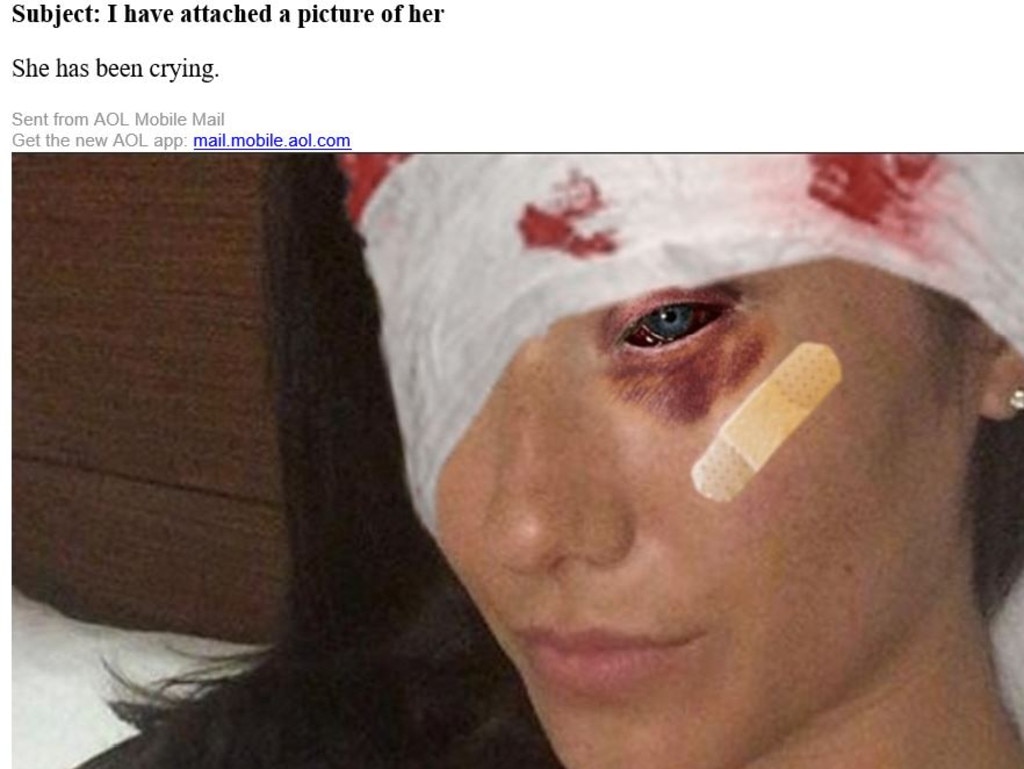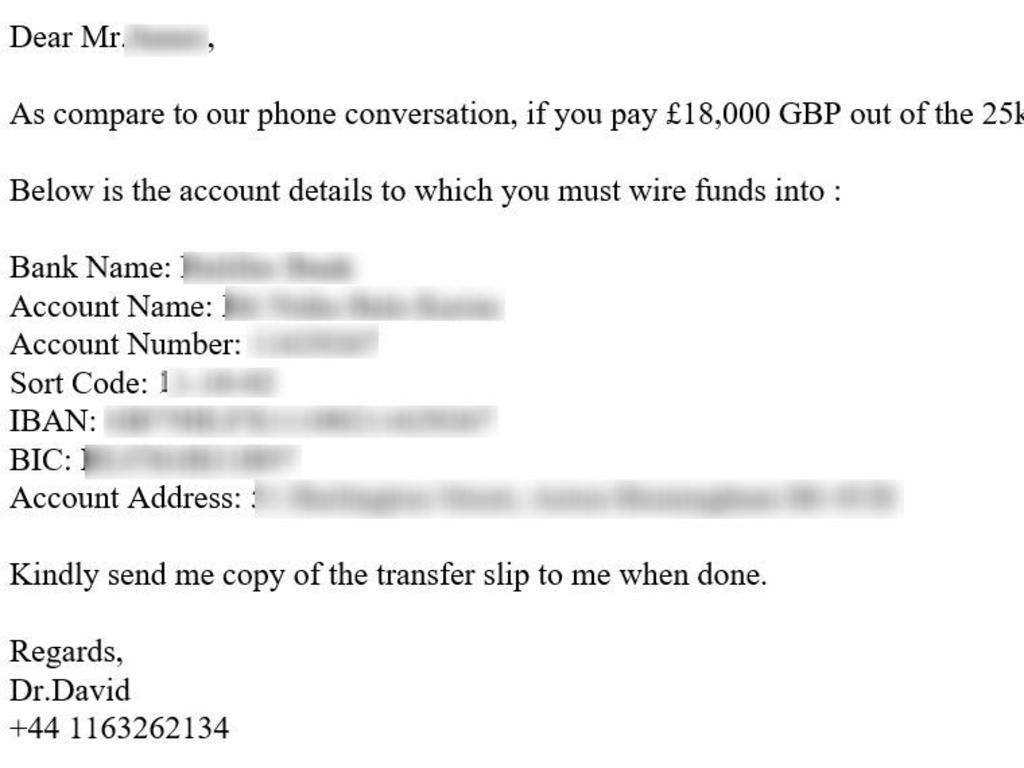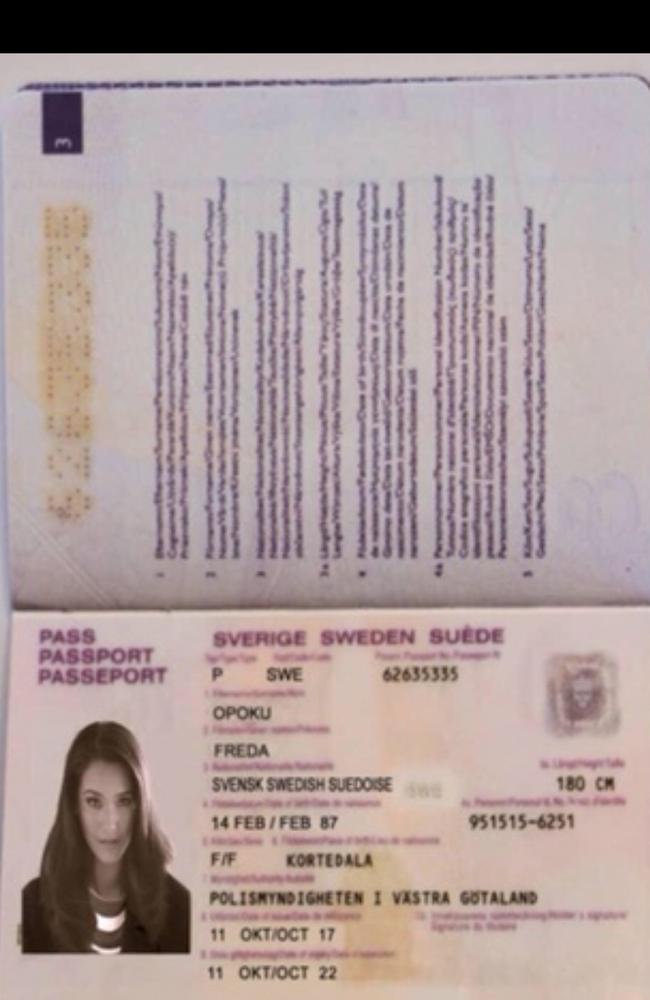Online catfish thwarted trying to scam $20,000 from 80yo Queensland man
A scam involving photoshopped images, a fake car crash and a plea for $20,000 has exposed the dark reality of online dating sites.

An elderly Australian man who was looking for love has been brutally scammed by a cruel online catfish.
Mr Dolton, from Queensland, believed he had struck up a romantic relationship with a 35-year-old Swedish woman who went by the name Freda. Despite the distance between them, the two had formed a close bond, and Freda had even planned a trip to Australia from her supposed home in the UK to tie the knot with Mr Dolton.
However, just before her planned visit, Freda was “involved in a car accident” and urgently needed $20,000 to cover the medical expenses.
Mr Dolton was deeply concerned for his partner and was ready to do anything to help her. Unfortunately, he was not aware of the fact that he was falling for a classic romance scam.

The Fraud and Scam Operations team at the Bank of Queensland was able to quickly identify the situation as a scam and intervened just in time to warn Mr. Dolton.
They informed him that Freda was not who she claimed to be, and that the supposed accident was just a ploy to extract money from him.
The scammer, who had been posing as Freda’s doctor “Dr David”, had been communicating with Mr Dolton and putting pressure on him to transfer the funds.
To make the situation more convincing, the scammer had been sending Mr Dolton images of Freda, allegedly injured and in the hospital, along with copies of her passport to validate her identity.
However, some images were poorly photoshopped, with fake bandages and a blatantly computer-generated blackened eye.
“She has been crying,” the scammer wrote in one email.

Mr Dolton avoided falling victim to the scam and was able to keep his hard-earned money safe.
Recent figures have shown the alarming rate Australians have been falling for online scams, with everything from complex dating frauds to widespread text message ploys entrapping thousands of people.
Bank of Queensland Customer Advocate Ben Griffin said scams usually ramp up around Valentines Day when heartless scammers attempt to siphon money off lonely senior citizens.
“Unfortunately, Mr Dolton isn’t alone in experiencing romance scams. We’re seeing these scams happen more and more often with initial contact from a scammer occurring on every dating site you can think of, social media sites and even gaming portals,” he told news.com.au.
“Just like we saw with this case, romance scammers tend to “borrow” photos of people to catfish the victim. The lengths these scammers will go to, to accentuate their story and make it appear realistic cannot be underestimated.”
Mr Griffin said signs to look out for were “rapid declarations of love and affection”, warning that if it seems too good to be true, it probably is.
“They can be incredibly persuasive and will prey on emotional triggers,” he continued. “The scammers are also never available in person, but keep victims hopeful with plans of finally meeting.
“For those who fall victim, it is really devastating. Some of the cases we see have taken place over months or even years. Not only have these victims’ lost their money, but they also feel the heartbreak of a false connection.
“This Valentine’s Day, be extra vigilant – never transfer money or share personal information such as bank details or personal photos with someone you haven’t met in person. And remember, if they apply pressure, stop communicating.”
The Bank of Queensland said it recorded over $16 million in scams involving its customers in 2022.
Scamwatch have also reported that Australians lost over $40 million to romance scams in 2022 with, overall scam loses coming in at $568.6 million dollars.

ACCC deputy chair Delia Rickard said it was important to independently verify suspicious messages, perhaps by contacting the sender through another form of communication, or asking questions to ascertain their identity.
“We are warning Australians to be very wary of messages from unknown numbers claiming to be from their children, parents, relatives or friends,” she said.
“Scammers will stop at nothing to get your personal details or money and this particular scam is designed to pull your heartstrings.
“It’s important to stop and think if you get a message, especially on WhatsApp, because chances are it’s not your family member or friend – it’s a scammer.
“Above all, never send money without being absolutely sure who you are sending it to.”




